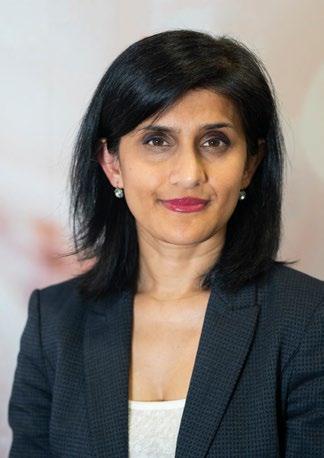
3 minute read
Creating safety and respect in healthcare cultures
The Royal Australasian College of Surgeons (RACS) is widely recognised for its sustained commitment to fostering a safety culture and promoting respect in health care. In April, the College collaborated to organise the Creating Healthcare Cultures of Safety & Respect Conference, to help progress cultural change and explore the role of different healthcare agencies in meeting this enduring challenge.
More than 250 people now working in Australia and Aotearoa New Zealand to effect cultural change in health care registered to join in our first combined virtual summit, which recognised RACS’ leadership and sustained commitment to building a culture of respect through surgical education, cultural change and complaints management.
Advertisement
Collectively, speakers called time on describing the problems in healthcare culture and called for evaluations of interventions and actions to implement that support behavioural change.
In keynote addresses, Professor Johanna Westbrook, of Macquarie University, and Professor Russell Mannion, of the University of Birmingham, spoke about the idea of incivility contagion, which compromises team performance and therefore patient safety.
Professor Westbrook discussed research findings about the poor performance of teams exposed to rudeness. She said some groups (often younger staff, nurses and non-clinical staff) were more at risk of incivility and unprofessional behaviour, which was prevalent across the sector. Other research found skills in ‘speaking up’ were associated with lower odds of experiencing frequent bullying and reduced the impact of bullying. She explored how rudeness increased individuals’ cognitive load by stealing resources away from the task at hand.
Professor Mannion spoke of the importance of a ‘speaking up’ culture, as well as the complexities inherent in creating it. This included the need to differentiate bullying from underperformance, lack of staff clarity about what issues should be raised, questions about the motivations of whistleblowers and “organisational resistance to bad news”, when “people in positions of power are vested in narratives of success”. The invisibility of actions taken in response to issues raised was also a deterrent to speaking up. Professor Mannion discussed the National Freedom to Speak Up Guardians in the United Kingdom, a National Health Service mandated program recognising the role of speaking up in safe and respectful healthcare cultures. He spoke about the frequent gap between organisational intention and resourcing, and of the systemic barriers to effecting change.
Conference speakers advocated for collaborations to support cultural change in health care that foster safety and respect, arguing that a shared endeavour from employers, educators and professional associations was essential. Both individual and systemic change is needed, given that good people in bad systems lead to bad outcomes.
Long-time adviser to RACS and keynote speaker Dr Gerry Hickson shared research indicating how the failure to address disrespectful behaviour leads to more lawsuits and more poor patient outcomes, has a negative impact on culture and performance, and causes organisational reputation damage. Dr Hickson was adamant that “you don’t have safety without respect,” and he said that “teaching our people to talk to each other in the moment” was a feature of the Vanderbilt University system, which has shaped RACS’ approach to cultural change. He described professionalism as “the body of knowledge owned by the profession, distinguished from mere skill”, and of the obligation for self-regulation in medicine.
In the context of speaking up about unacceptable behaviour, presenters brought together by the Royal Australasian College of Medical Administrators (RACMA) spoke of the value of pre-rehearsed responses in the face of racism, sexism or other prejudice. One such example that gave was, ‘I was having a great day until you made that casually racist/sexist remark.’ They also asserted that people don’t have to be in a leadership role to make such statements, the most senior person in the room holds the responsibility to call it out.
Dr Christine Lai showcased RACS’ Building Respect program and shared her insights into what we have learned. It is pleasing that conference delegates have since followed up with their interest in our work, given multi-party collaborations are key to building a culture of respect.
RACS is proud to have collaborated in the organisation of the April 2021 Creating Healthcare Cultures of Safety & Respect Conference, with Macquarie University, St Vincent’s Health Australia and RACMA.

Speaking up is about problem solving, not judging.
Associate Professor Payal Mukherjee EAR NOSE & THROAT SURGEON








